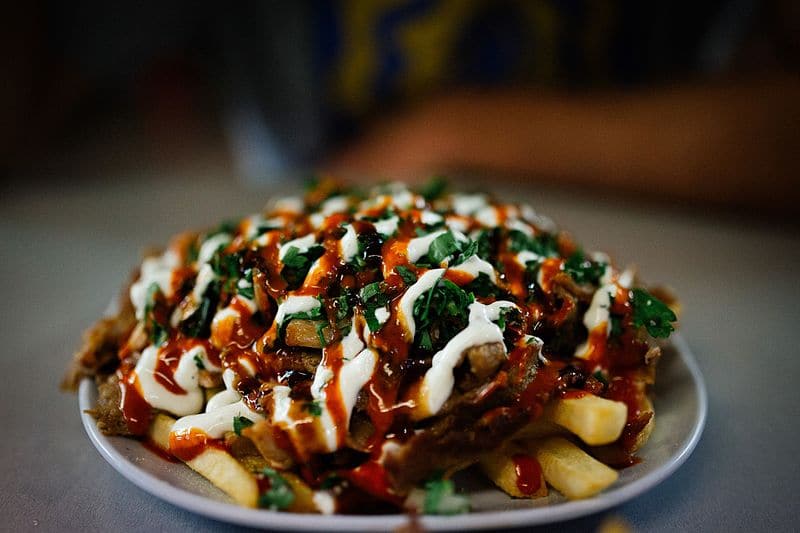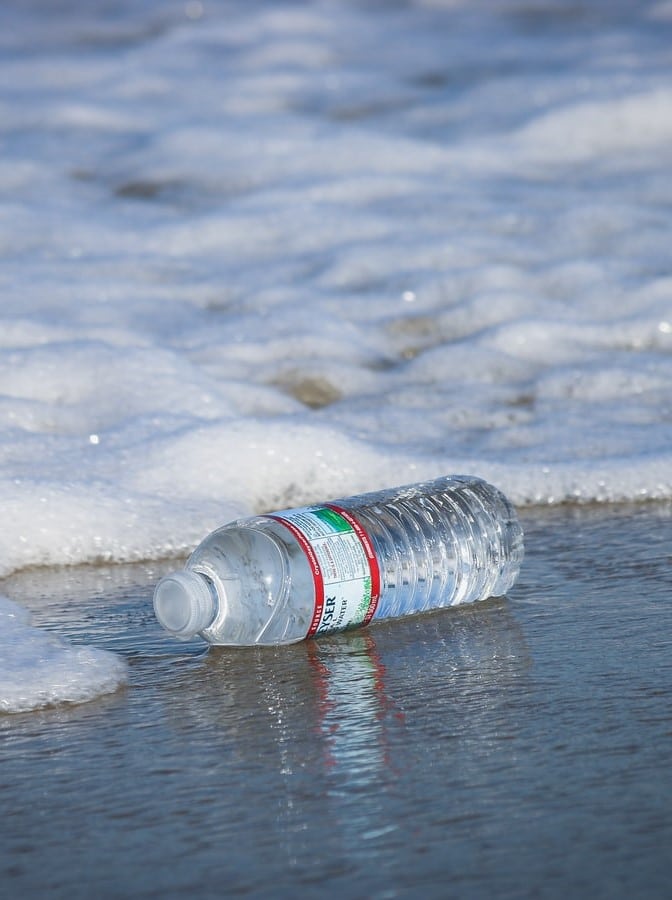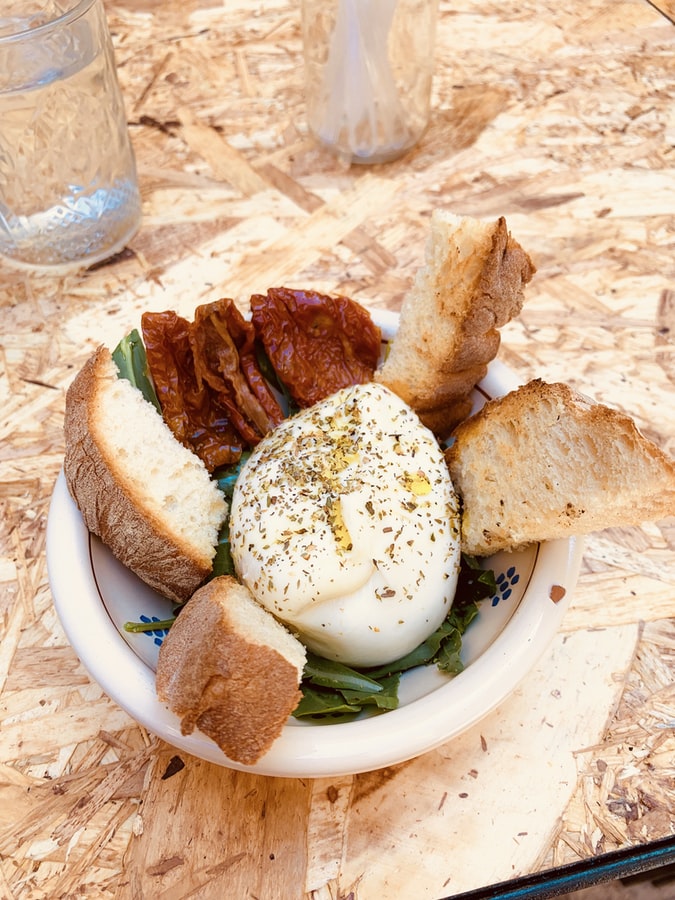There are five days left to vote for Macquarie Dictionary Word of the Decade, and the list of words to choose from is quite something.
Voters may select from a collection of words added to the Macquarie Dictionary over the last 10 years (2011-2020) – some serious, some comical, some – like ‘fake news’ – timelier than ever.
Thankfully, voters needn’t choose just one – the voting form provides space for three favourites from the lengthy list.
Voting closes at noon on Wednesday 3 February, with the winner to be announced on Thursday 4 February.
To refresh your memory about when and why the shortlisted words were embedded in our lexicon, we’ve assembled the cheat sheet below.
2011
Burkini
noun a swimsuit designed for Muslim women, comprising leggings and a tunic top with a hood.
The burkini was designed in Bankstown, Sydney, by Aheda Zanetti, offering a practical, comfortable garment for the beach that aligned with the Islamic faith.
Zanetti is also the creator of other sporty modesty garments including the hijood – where the hijab becomes a breathable hood – for exercise on land.

The burkini is not welcome on all beaches around the globe, including in parts of France, Belgium and Bulgaria where the sun safe swimsuit is banned by governments that argue it poses security risks.
Fracking
noun (in oil and gas mining) a process by which fractures are made in rock by the application under pressure of chemically treated water mixed with sand to natural or man-made openings in order to gain access to oil or gas supplies, considered by some to be associated with groundwater contamination; fracking.
The future of fracking continues to be hotly debated in Australian politics, and US President Joe Biden banned fracking on federal land when he stepped into office last week.
2012
Phantom vibration syndrome
noun a syndrome characterised by constant anxiety in relation to one’s mobile phone and an obsessional conviction that the phone has vibrated in response to an incoming call when in fact it has not.
If you’ve ever felt the twitchy urge to reach for your pocket, certain you sensed an incoming call, text, or social media notification, only to find a blank screen staring back at you – you’re not alone. Phantom vibration syndrome is real, and unless you have the audacity to keep your phone off silent in the office, it’s here to stay.
First world problem
noun a problem that relates to the affluent lifestyle associated with the First World, that would never arise in the poverty-stricken circumstances of the Third World, as having to settle for plunger coffee when one’s espresso machine is not functioning.
Another 21st century turn of phrase which will remain relevant for the foreseeable future.
2013
Infovore
noun a person who craves information, especially one who takes advantage of their ready access to it on digital devices.
For example: the pandemic was a breeding ground for infovores.
Onesie
noun a loose-fitting one-piece suit, usually of a stretch fabric, gathered at the wrists and ankles and loose at the crotch.
Did your onesie make a comeback in 2020? The perfect work from home uniform, surely.
2014
Mansplain
verb Colloquial (humorous) (of a man) to explain (something) to a woman, in a way that is patronising because it assumes that a woman will be ignorant of the subject matter.
Most women knew what mansplaining was before a word existed for it, and six years later this verb still has its place in the popular vernacular.
Share plate
noun a serving in a restaurant designed as multiple small portions so that several diners can share the same dish.
Much to our regret, share plates were off the cards in 2020 – they’re not the most COVID-safe menu item, but we’re looking forward to dipping chunks of sourdough into communal bowls of burrata in the near future.
2015
Captain’s call
noun a decision made by a political or business leader without consultation with colleagues.
There was only one entry in 2015, because the winner chosen by Word of the Year Committee and the People’s Choice Award were the same!
Macquarie editor Susan Butler speculated this was because captain’s call touches on two national passions – cricket and politics.
Captain’s call was popularised when former Prime Minister Tony Abbott used the phrase to defend his decision to hand Prince Philip a Knighthood.
2016
Fake news
plural noun disinformation and hoaxes published on websites for political purposes or to drive web traffic, the incorrect information being passed along by social media.
Fake news was a favourite phrase of former US President Donald Trump. Fact checking has been crucial during the COVID-19 crisis, as misinformation and disinformation proliferated online.
Halal snack pack
noun a fast food comprising layers of hot chips, grated cheese, halal doner kebab meat, garlic sauce, barbecue sauce and chilli sauce.
Former Western Sydney Labor senator Sam Dastyari was the champion of the halal snack pack in 2016, and you might remember One Nation Leader Pauline Hanson’s distaste when he encouraged her to try one herself.
2017
Milkshake duck
noun a person who is initially viewed positively by the media but is then discovered to have something questionable about them which causes a sharp decline in their popularity.
Maybe you had to be there? We’re not sure this quirky noun that went viral on Twitter has the staying power to take the title of Word of the Decade.
Framily
noun (plural framilies) Colloquial a group of people who are not related by blood but who constitute an intimate network.
If you have a framily you might celebrate Friendsmas, and we’ve heard of Friendsgiving in the United States.
Framily’s sheen wears off upon learning it was coined by US marketing agency Sprint.

2018
Me Too
adjective of or relating to an accusation of sexual harassment or sexual assault, especially as having occurred at some time in the past and which has since remained undisclosed.
In 2006, the Me Too movement was founded by survivor and activist Tarana Burke, and in 2017, the #metoo hashtag went viral and became a word shared by survivors of sexual violence around the world.
Tarana Burke accepted the 2019 Sydney Peace Prize on behalf of the Me Too campaign, and said Australia’s defamation laws were “debilitating” to the movement.
Single-use
adjective intended for disposal after only one use: single-use plastic bag; single-use cup.
Still relevant! The ABC’s War on Waste program brought the environmental damage caused by single-use plastics to the forefront of national consciousness, and in December 2020 the ACT Government announced it will phase out single-use cutlery, stirrers and takeaway containers in 2021.
2019
Cancel culture
noun the attitudes within a community which call for or bring about the withdrawal of support from a public figure, such as cancellation of an acting role, a ban on playing an artist’s music, removal from social media, etc., usually in response to an accusation of a socially unacceptable action or comment.
Cancel culture remains hotly debated in the media. In Australia some well-known figures that have been cancelled include colonisers Captain Cook and Lachlan Macquarie, TV creative Chris Lilley and dairy producer Coon cheese, which will rebrand as Cheer cheese mid-2021.
Robodebt
noun a debt owed to the government by a present or past welfare recipient, arising from an overpayment of benefits calculated by an automated process which compares the recipient’s income as stated by them to the government with their income as recorded by the taxation authority, a notice of discrepancy being automatically generated.
Last year, the Australian Government agreed to a $1.2 billion compensation deal minutes before a trial was to begin as part of a class action Gordon Legal ran on behalf of robodebt victims. Prime Minister Scott Morrison expressed “deep regret” for hardship caused by Robodebt in June.
2020
Given 2020 was, hopefully, a once in a lifetime experience. it was awarded a depressing new category ‘COVID-19 Word of the Year’. As a result, there are four words from 2020 in the running for Word of the Decade.
Doomscrolling
noun Colloquial the practice of continuing to read news feeds online or on social media, despite the fact that the news is predominantly negative and often upsetting.
It’s all too easy to fall into a vortex of bad news, scrolling the feed for updates or fresh information on the pandemic. Remember to put the phone down and come up for air. The origins of doomscrolling are unclear, but it’s reported to have appeared on Twitter as early as 2018.
Rona
noun Colloquial COVID-19: we met online during the rona; rona wrecked their wedding plans.

Rona has a distinctly Aussie twang, it’s playful and irreverent, and like all good Australian colloquialisms, it cuts as many syllables as possible from its forebearer – coronavirus.
Karen
noun Colloquial (derogatory) (a term used predominantly to refer to a middle-class white woman, often of generation X, who is regarded as having an entitled, condescending and often racist attitude.)
It’s not clear when or where the contentious slang word Karen originated. The meme became popular a few years ago as a way for people of colour, particularly black Americans, to satirise the racism, classism, and hostility they often face.
Covidiot
noun Colloquial (derogatory) a person who refuses to follow health advice aimed at halting the spread of COVID-19, as by not social distancing, taking part in large gatherings, etc., as well as buying large amounts of perceived staples, especially toilet paper.
Covidiot was a runaway winner in the People’s Choice vote in 2020, and it was given an Honourable Mention by the Committee, with one member saying, “we saw no end of covidiots on TV – and the occasional maskhole as well”.
For more entertainment:



